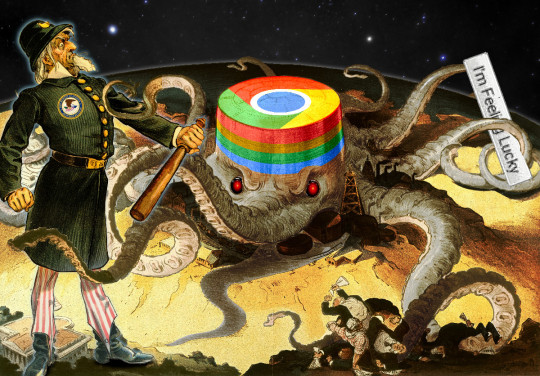#southern Vietnam
Text

Cai Mon Orchad Village, Chợ Lách District, Ben Tre province, southern Vietnam: Cai Mon Orchard Village is considered as the kingdom of bonsai in Vietnam, and the cradle of fruit trees in South Vietnam, with fruit ready for visitors in any season. Located on the bank of the Tien River in Tien Thuy village, Vinh Thanh Commune, Cho Lach District, Ben Tre Province, Cai Mon’s professional village annually supplies products such as durians, mangosteens, mangoes, longans and varieties of citrus.
78 notes
·
View notes
Note
Emeraldl Cockroach (Pseudoglomeris magnifica)!


#vietnam#southern china#asian bug#emerald roach#emerald cockroach#roach#blattodea#insecta#insects#insect#bug#bugs#animal polls#poll blog#my polls#animals#polls#tumblr polls
76 notes
·
View notes
Text



1970's show girl in Vietnam.
#1970's#saigon#vhs#70's#film stills#surrealism#vintage film#early 2000s#midwestern horror#small town gothic#evidence of life#rural abandoned#abandoned building#southern gothic#filmphotography#vietnam#80's#analog photography#old film#religious imagery#rural town#camcorder#abandoned#showgirl#strip dance#club dance#vintage gif#vietnamese girl#retro archive#strip club
49 notes
·
View notes
Text

Map of the Colonial southern Vietnam and Laos
French vintage postcard
#vintage#vietnam#tarjeta#briefkaart#postcard#photography#postal#carte postale#sepia#ephemera#historic#french#ansichtskarte#laos#southern#postkarte#colonial#postkaart#photo
12 notes
·
View notes
Text
I'm just gonna go out on a limb and hope that the third game will go to the Mekong Delta. Not only to see Seyka again, but the sceneries aaaaa: Angkor Wat (I'd die if I see this in a video game especially PS graphics. It's already old but with the vegetation regrowing over a millennia *scream*), the food (Guerilla pls have more food animation like FFXV. A scene of Aloy seeing durian and using it as an explosive trap meanwhile the Quen screaming "noooo our food" would be absolutely hilarious), Khmer temples, Buddhist pagodas, floating village, flower village, floating market, river filled of lotus flowers, cajuput forest with its famous green river, endless forest of coconut trees. Oh and the potential for spooky scary folklores as side quests, water source dispute side quests, monkey bridge mini games, the brutal mosquitoes, and monsoon season struggles, so much potential for world building content. Forgot to mention the small rivers are very romantic, perfect for date iykwim 👀
#hfw burning shores#hfw#aloy#seyka#I haven't finished the DLC yet but I have so many speculations#I hope Seyka comes back in the 3rd game#wonder if the 3rd game will be cross-gen as well#the game mentioned the 'Great Delta' so my guess is it's more Southern Vietnam region#but Angkor Wat is on the Mekong too and I love this old structure ok#Guerilla games pls hire me as culture consultant#there's also a monkey island where they will rob you but that's technically right outside the region#colin mumbles
28 notes
·
View notes
Text
TOP 10 VIETNAMESE WORDS
According to the Flexi Class website
và ~ and
của ~ of, to belong to
các ~ these
được ~ can, be able to
một ~ one, a/an
là ~ to be
trong ~ during, among
đã ~ (a past tense marker)
những ~ several, many
năm ~ five, year
#what do you think/do you agree?#learning vietnamese#vietnam#vietnamese#studyblr#study blog#study#language#language learning#top 10 vietnamese words#southern vietnamese#learning#vietnamese language#language learning community
2 notes
·
View notes
Text
ysh is southeast asian To Me
#hewwo#this is just personal thoughts btw so i don't actually think mxtx did anything on purpose but#ysh reminds me of lakapati (a real tagalog goddess of agriculture known for being generous with giving food to worshippers)#but in general her designs are more likely inspired by southern china or vietnam
4 notes
·
View notes
Text
Affordable federal light 1 bedroom apartment visit website decor for rent with Amazon home decoration living room located at Nta road by open university estate in port Harcourt city rivers state nigeria pls listen to the video presentation thanks.
#rivers state#abuja#vietnam#wike#bangladesh#lagos#nysc#nigeria#youtube#portharcourt#pakistan#india#south korea#south africa#southern goth aesthetic#public news#contract#reuters#southern gothic#times#returns#south park
1 note
·
View note
Text
i'm fine no need to tell me
0 notes
Text
The Google antitrust remedy should extinguish surveillance, not democratize it

I'm coming to DEFCON! On FRIDAY (Aug 9), I'm emceeing the EFF POKER TOURNAMENT (noon at the Horseshoe Poker Room), and appearing on the BRICKED AND ABANDONED panel (5PM, LVCC - L1 - HW1–11–01). On SATURDAY (Aug 10), I'm giving a keynote called "DISENSHITTIFY OR DIE! How hackers can seize the means of computation and build a new, good internet that is hardened against our asshole bosses' insatiable horniness for enshittification" (noon, LVCC - L1 - HW1–11–01).

If you are even slightly plugged into the doings and goings on in this tired old world of ours, then you have heard that Google has lost its antitrust case against the DOJ Antitrust Division, and is now an official, no-foolin', convicted monopolist.
This is huge. Epochal. The DOJ, under the leadership of the fire-breathing trustbuster Jonathan Kanter, has done something that was inconceivable four years ago when he was appointed. On Kanter's first day on the job as head of the Antitrust Division, he addressed his gathered prosecutors and asked them to raise their hands if they'd never lost a case.
It was a canny trap. As the proud, victorious DOJ lawyers thrust their arms into the air, Kanter quoted James Comey, who did the same thing on his first day on the job as DA for the Southern District of New York: "You people are the chickenshit club." A federal prosecutor who never loses a case is a prosecutor who only goes after easy targets, and leave the worst offenders (who can mount a serious defense) unscathed.
Under Kanter, the Antitrust Division has been anything but a Chickenshit Club. They've gone after the biggest game, the hardest targets, and with Google, they bagged the hardest target of all.
Again: this is huge:
https://www.thebignewsletter.com/p/boom-judge-rules-google-is-a-monopolist
But also: this is just the start.
Now that Google is convicted, the court needs to decide what to do about it. Courts have lots of leeway when it comes to addressing a finding of lawbreaking. They can impose "conduct remedies" ("don't do that anymore"). These are generally considered weaksauce, because they're hard to administer. When you tell a company like Google to stop doing something, you need to expend a lot of energy to make sure they're following orders. Conduct remedies are as much a punishment for the government (which has to spend millions closely observing the company to ensure compliance) as they are for the firms involved.
But the court could also order Google to stop doing certain things. For example, since the ruling finds that Google illegally maintained its monopoly by paying other entities – Apple, Mozilla, Samsung, AT&T, etc – to be the default search, the court could order them to stop doing that. At the very least, that's a lot easier to monitor.
The big guns, though are the structural remedies. The court could order Google to sell off parts of its business, like its ad-tech stack, through which it represents both buyers and sellers in a marketplace it owns, and with whom it competes as a buyer and a seller. There's already proposed, bipartisan legislation to do this (how bipartisan? Its two main co-sponsors are Ted Cruz and Elizabeth Warren!):
https://pluralistic.net/2023/05/25/structural-separation/#america-act
All of these things, and more, are on the table:
https://www.wired.com/story/google-search-monopoly-judge-amit-mehta-options/
We'll get a better sense of what the judge is likely to order in the fall, but the case could drag out for quite some time, as Google appeals the verdict, then tries for the Supreme Court, then appeals the remedy, and so on and so on. Dragging things out in the hopes of running out the clock is a time-honored tradition in tech antitrust. IBM dragged out its antitrust appeals for 12 years, from 1970 to 1982 (they called it "Antitrust's Vietnam"). This is an expensive gambit: IBM outspent the entire DOJ Antitrust Division for 12 consecutive years, hiring more lawyers to fight the DOJ than the DOJ employed to run all of its antitrust enforcement, nationwide. But it worked. IBM hung in there until Reagan got elected and ordered his AG to drop the case.
This is the same trick Microsoft pulled in the nineties. The case went to trial in 1998, and Microsoft lost in 1999. They appealed, and dragged out the proceedings until GW Bush stole the presidency in 2000 and dropped the case in 2001.
I am 100% certain that there are lawyers at Google thinking about this: "OK, say we put a few hundred million behind Trump-affiliated PACs, wait until he's president, have a little meeting with Attorney General Andrew Tate, and convince him to drop the case. Worked for IBM, worked for Microsoft, it'll work for us. And it'll be a bargain."
That's one way things could go wrong, but it's hardly the only way. In his ruling, Judge Mehta rejected the DOJ's argument that in illegally creating and maintaining its monopoly, Google harmed its users' privacy by foreclosing on the possibility of a rival that didn't rely on commercial surveillance.
The judge repeats some of the most cherished and absurd canards of the marketing industry, like the idea that people actually like advertisements, provided that they're relevant, so spying on people is actually doing them a favor by making it easier to target the right ads to them.
First of all, this is just obvious self-serving rubbish that the advertising industry has been repeating since the days when it was waging a massive campaign against the TV remote on the grounds that people would "steal" TV by changing the channel when the ads came on. If "relevant" advertising was so great, then no one would reach for the remote – or better still, they'd change the channel when the show came back on, looking for more ads. People don't like advertising. And they hate "relevant" advertising that targets their private behaviors and views. They find it creepy.
Remember when Apple offered users a one-click opt-out from Facebook spying, the most sophisticated commercial surveillance system in human history, whose entire purpose was to deliver "relevant" advertising? More than 96% of Apple's customers opted out of surveillance. Even the most Hayek-pilled economist has to admit that this is a a hell of a "revealed preference." People don't want "relevant" advertising. Period.
The judge's credulous repetition of this obvious nonsense is doubly disturbing in light of the nature of the monopoly charge against Google – that the company had monopolized the advertising market.
Don't get me wrong: Google has monopolized the advertising market. They operate a "full stack" ad-tech shop. By controlling the tools that sellers and buyers use, and the marketplace where they use them, Google steals billions from advertisers and publishers. And that's before you factor in Jedi Blue, the illegal collusive arrangement the company has with Facebook, by which they carved up the market to increase their profits, gouge advertisers, starve publishers, and keep out smaller rivals:
https://en.wikipedia.org/wiki/Jedi_Blue
One effect of Google's monopoly power is a global privacy crisis. In regions with strong privacy laws (like the EU), Google uses flags of convenience (looking at you, Ireland) to break the law with impunity:
https://pluralistic.net/2023/05/15/finnegans-snooze/#dirty-old-town
In the rest of the world, Google works with other members of the surveillance cartel to prevent the passage of privacy laws. That's why the USA hasn't had a new federal privacy law since 1988, when Congress acted to ban video-store clerks from telling newspaper reporters about the VHS cassettes you took home:
https://en.wikipedia.org/wiki/Video_Privacy_Protection_Act
The lack of privacy law and privacy enforcement means that Google can inflict untold privacy harms on billions of people around the world. Everything we do, everywhere we go online and offline, every relationship we have, everything we buy and say and do – it's all collected and stored and mined and used against us. The immediate harm here is the haunting sense that you are always under observation, a violation of your fundamental human rights that prevents you from ever being your authentic self:
https://www.theguardian.com/technology/blog/2013/jun/14/nsa-prism
The harms of surveillance aren't merely spiritual and psychological – they're material and immediate. The commercial surveillance industry provides the raw feedstock for a parade of horribles, from stalkers and bounty hunters turning up on their targets' front doors to cops rounding up demonstrators with location data from their phones to identity thieves tricking their marks by using leaked or purchased private information as convincers:
https://pluralistic.net/2023/12/06/privacy-first/#but-not-just-privacy
The problem with Google's monopolization of the surveillance business model is that they're spying on us. But for a certain kind of competition wonk, the problem is that Google is monopolizing the violation of our human rights, and we need to use competition law to "democratize" commercial surveillance.
This is deeply perverse, but it represents a central split in competition theory. Some trustbusters fetishize competition for its own sake, on the theory that it makes companies better and more efficient. But there are some things we don't want companies to be better at, like violating our human rights. We want to ban human rights violations, not improve them.
For other trustbusters – like me – the point of competition enforcement isn't merely to make companies offer better products, it's to make companies small enough to hold account through the enforcement of democratic laws. I want to break – and break up – Google because I want to end its ability to bigfoot privacy law so that we can finally root out the cancer of commercial surveillance. I don't want to make Google smaller so that other surveillance companies can get in on the game.
There is a real danger that this could emerge from this decision, and that's a danger we need to guard against. Last month, Google shocked the technical world by announcing that it would not follow through on its years-long promise to kill third-party cookies, one of the most pernicious and dangerous tools of commercial surveillance. The reason for this volte-face appears to be concern that the EU would view killing third-party cookies as anticompetitive, since Google intended to maintain commercial surveillance using its Orwellian "Privacy Sandbox" technology in Chrome, with the effect that everyone except Google would find it harder to spy on us as we used the internet:
https://www.thebignewsletter.com/p/googles-trail-of-crumbs
It's true! This is anticompetitive. But the answer isn't to preserve the universal power of tech companies large and small to violate our human rights – it's to ban everyone, especially Google, from spying on us!
This current in competition law is still on the fringe, but the Google case – which finds the company illegally dominating surveillance advertising, but rejects the idea that surveillance is itself a harm – offers an opportunity for this bad idea to go from the fringe to the center.
If that happens, look out.
Take "attribution," an obscure bit of ad-tech jargon disguising a jaw-droppingly terrible practice. "Attribution" is when an ad-tech company shows you an ad, and then follows you everywhere you go, monitoring everything you do, to determine whether the ad convinced you to buy something. I mean that literally: they're combining location data generated by your phone and captured by Bluetooth and wifi receivers with data from your credit card to follow you everywhere and log everything, so that they can prove to a merchant that you bought something.
This is unspeakably grotesque. It should be illegal. In many parts of the world, it is illegal, but it is so lucrative that monopolists like Google can buy off the enforcers and get away with it. What's more, only the very largest corporations have the resources to surveil you so closely and invasively that they can perform this "service."
But again, some competition wonks look at this situation and say, "Well, that's not right, we need to make sure that everyone can do attribution." This was a (completely mad) premise in the (otherwise very good) 2020 Competition and Markets Authority market-study on "Online platforms and digital advertising":
https://assets.publishing.service.gov.uk/media/5fa557668fa8f5788db46efc/Final_report_Digital_ALT_TEXT.pdf
This (again, otherwise sensible) document veers completely off the rails whenever the subject of attribution comes up. At one point, the authors propose that the law should allow corporations to spy on people who opt out of commercial surveillance, provided that this spying is undertaken for the sole purpose of attribution.
But it gets even worse: by the end of the document, the authors propose a "user ID intervention" to give every Briton a permanent, government-issued advertising identifier to make it easier for smaller companies to do attribution.
Look, I understand why advertisers like attribution and are willing to preferentially take their business to companies that can perform it. But the fact that merchants want to be able to peer into every corner of our lives to figure out how well their ads are performing is no basis for permitting them to do so – much less intervening in the market to make it even easier so more commercial snoops can get their noses in our business!
This is an idea that keeps popping up, like in this editorial by a UK lawyer, where he proposes fixing "Google's dominance of online advertising" by making it possible for everyone to track us using the commercial surveillance identifiers created and monopolized by the ad-tech duopoly and the mobile tech duopoly:
https://www.thesling.org/what-to-do-about-googles-dominance-of-online-advertising/
Those companies are doing something rotten. In dominating ads, they have stolen billions from publishers and advertisers. Then they used those billions to capture our democratic process and ensure that our human rights weren't being defended as they plundered our private data and put us in harm's way.
Advertising will adapt. The marketing bros know this is coming. They're already discussing how to live in a world where you can't measure clicks and you can't attribute actions (e.g. the world from the first advertisements up until the early 2000s):
https://sparktoro.com/blog/attribution-is-dying-clicks-are-dying-marketing-is-going-back-to-the-20th-century/
An equitable solution to Google's monopoly will not run though our right to privacy. We don't solve the Google monopoly by creating competition in surveillance. The reason to get rid of Google's monopoly is to make it easier to end surveillance.

If you'd like an essay-formatted version of this post to read or share, here's a link to it on pluralistic.net, my surveillance-free, ad-free, tracker-free blog:
https://pluralistic.net/2024/08/07/revealed-preferences/#extinguish-v-improve

Image:
Cryteria (modified)
https://commons.wikimedia.org/wiki/File:HAL9000.svg
CC BY 3.0
https://creativecommons.org/licenses/by/3.0/deed.en
#pluralistic#google#antitrust#monopolies#remedies#ad-tech#competition#power#doj v google#attribution
1K notes
·
View notes
Text

Cai Mon flower village, Chợ Lách District, Ben Tre province, southern Vietnam: Cai Mon ornamental flower village - Cho Lach is not only a commercial area but also a famous Ben Tre tourist destination, especially attracting tourists who love flowers. In the days leading up to early spring, the flower garden becomes more vibrant with thousands of different species of flowers blooming brightly. Chợ Lách is a rural district of Bến Tre province in the Mekong Delta region of Vietnam. Wikipedia
75 notes
·
View notes
Text

Vietnamese Mossy Frog (Theloderma corticale), family Rhacophoridae, found in northern Vietnam, south–central Laos, and southern China
photograph by Terra-Amphibia
699 notes
·
View notes
Text





#1970's#vhs#70's#film stills#surrealism#vintage film#early 2000s#midwestern horror#small town gothic#evidence of life#rural abandoned#ruralcore#abandoned building#southern gothic#filmphotography#vietnam#80's#analog photography#old film#religious imagery#small town#rural town#camcorder#abandoned#uncanny#vintage women#nostagiacore
11 notes
·
View notes
Text

Indigenous people from southern Vietnam
French vintage postcard
#tarjeta#postkaart#sepia#carte postale#ansichtskarte#people#briefkaart#photo#photography#postal#postkarte#vintage#southern#french#postcard#historic#vietnam#ephemera#indigenous
4 notes
·
View notes
Text
[BBC is UK State Media]
A vessel suspected by the Namibian authorities to be carrying military cargo intended for Israeli use in the ongoing war in Gaza has been blocked from docking in the southern African country.
Namibian Justice Minister Yvonne Dausab told state media the ship was stopped because it had “explosive material destined for Israel".
The MV Kathrin, which set off from Vietnam, had requested permission to dock in the port of Walvis Bay – before sailing north, on a suspected route towards the Mediterranean via the Strait of Gibraltar.
Rights groups had warned that Namibia could have been implicated in potential human rights violations had it allowed the vessel to dock.[...]
The MV Kathrin, which was set to dock at Walvis Bay on Monday from Vietnam, was stopped in accordance with Namibia's support for the Palestinian people and the country’s call for an end to the violence in Gaza, Ms Dausab told the state-run New Era news website.
Citing a police investigation, Ms Dausab said the vessel was "indeed carrying explosive material destined for Israel, and was therefore prohibited from entering Namibian waters".
“Namibia complies with our obligation not to support or be complicit in Israeli war crimes, crimes against humanity, genocide, as well as its unlawful occupation of Palestine,” she said.[...]
Namibian human rights organisation the Economic and Social Justice Trust (ESJT) welcomed the move.
"We are pleased that our government has decided to respect international law and decided not to be complicit to genocide," ESJT's Herbert Jauch told the BBC[...]
Namport has not responded to the BBC for comment about the MV Kathrin.
The real stewards of the International Rules Based Order [27 Aug 24]
613 notes
·
View notes
Text
Solarpunk Art 2023 (BIOREGIONS)

Temperate Grassland in Ukraine by @the.lemonaut.

Desert/Xeric Shrublands in South Africa by @draakart

Mediterranean Forests/Scrubs in Southern California, USA by @helentadesseart

Boreal Forest by @_frandszk.

Mediterranean Forest/Scrubs in Tijuana, Mexico by Limonarte

Subtropical Evergreen Forests in South China & Vietnam by @solariscrescentart

Tropical & Subtropical Moist Broadleaf Forests in the Philippines by @lacan.lacapat

Temperate Broadleaf & Mixed Forests in the Ozark Highlands of the USA by Xiantifa

Temperate Broadleaf & Mixed Forests by Arikadough

Temperate Broadleaf & Mixed Forests in Indiana, USA by Toby Raab


Subtropical Evergreen Forests in South East Asia by @erisdar_art






Various Bioregions by Dustin Jacobus (@solarpunkart)
754 notes
·
View notes